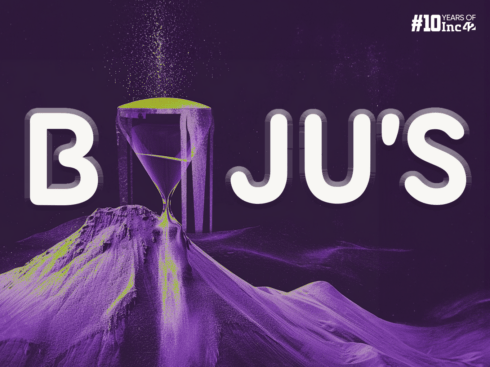
The Rebranding Decision Was Made Primarily Based On Highly Scientific Data Points
In 2010, we started Freshdesk as a “fresh” helpdesk with a dream to make a dent in the world of customer support. Since then, while Freshdesk continued to grow exponentially, we moved beyond customer service as a company by offering innovative products in the ITSM and CRM domains.
As we expand our vision and build more exciting products, we felt that this was the right time to move to an umbrella brand. Today, I’m happy to announce that we are rebranding the company as Freshworks.
For those of you who are interested in knowing more about our journey and how we came about rebranding the company, please read on…
The Multi-product Dream
I’ve always talked about how it was our dream to build a global product company. But not a lot of people know that in this dream, we saw ourselves as a multi-product company right from the day we started out.
In our early days, I used to discuss this a lot with my co-founder, Shan. In fact, we were so serious about it that we went ahead and purchased more than 40 domain names that started with the word “fresh”.
While we always had this vision at the back of our minds, Shan and I both knew that we had to start somewhere and we felt that building Freshdesk was the right thing for the company. I was confident that we could build a good customer support solution since I had built four of them in the past and knew the domain well enough to do it again. When we raised our first funding round from Accel Partners, we did it based on just Freshdesk’s business plans and did not talk to our investor about our multi-product ideas. At that point in time, it wasn’t anything beyond a dream.
We started focusing on Freshdesk and executed relentlessly, and managed to get to the 1000 customers mark. Around the same time, we started work on a new product in stealth mode, hoping that we could expand our vision. When one of our board members got us a meeting with a popular investor in Silicon Valley, we were expecting him to be excited about our multi-product strategy and validate our ideas. But that’s not what happened.
During that meeting, I received some of the best advice I’ve received as an entrepreneur and got a few perspectives that I would have never thought of myself. The most important one among those was this: “Don’t change the narrative of your company”.
It was a simple lesson that made a lot of sense. If you are a young startup looking to grow your business and raise more funding, it may not be a good sign for investors if you are talking about building a second product before seeing a lot of success with the first one. There’s a good chance that they might think that you’re pivoting from your original idea. It was also a good idea to focus on scaling Freshdesk and making sure that we weren’t confusing our customers with our plans.
We understood these concerns and decided to take the advice and put our second product on hold instead of fighting for our dreams blindly. Maybe someday, our stars would align and we’d get another chance.
Creating An Opportunity For Ourselves
Over the next few months, we continued to show good promise with Freshdesk. Our revenues grew steadily and we added thousands of customers from across the world. Towards the end of 2012, we had a new idea.
We’d create an IT Service Desk called Freshservice and make it our second product. The key thing here was that we could stay in control of our narrative without doing something too different from our original product. We would still be a company that built helpdesk software, with Freshdesk aimed at customer support teams and Freshservice meant for internal IT support teams. It was a natural extension because we saw that a lot of teams were using Freshdesk for internal support.
It was an experiment worth doing because it was a chance for us to demonstrate that we could build, launch and scale the second product in a reasonable amount of time. Despite this being unconventional, and not something you see in typical SaaS companies, our investors were on board with our idea. While we continued to work on Freshdesk and kept growing our customer base, we put together a separate team to work on Freshservice and continued work on both fronts, in parallel. We launched Freshservice in Jan 2014.Within 10 months of its launch, we managed to hit the million dollar revenue mark with Freshservice. Not only were we able to accomplish this much faster than Freshdesk, we also managed to do it with 3 times the ARPU (average revenue per customer). We were able to show our investors that we could be successful building multiple products at the same time, and also use our lessons from our past to grow faster. This was a key turning point in our journey that helped us align our board with our strategy. It also gave us the confidence to take on more challenges.
Within 10 months of its launch, we managed to hit the million dollar revenue mark with Freshservice. Not only were we able to accomplish this much faster than Freshdesk, we also managed to do it with 3 times the ARPU (average revenue per customer). We were able to show our investors that we could be successful building multiple products at the same time, and also use our lessons from our past to grow faster. This was a key turning point in our journey that helped us align our board with our strategy. It also gave us the confidence to take on more challenges.
When we started thinking about what to build next, the answer was obvious. Most of Freshdesk’s customers were integrating their helpdesk with their CRM, and we regularly got requests to integrate with different solutions in the market. Having tried a popular CRM for our own sales team, we realised that integrating it with other tools was a nightmare. In fact, we found that most of the time, our salespeople had to switch between multiple tools in addition to their CRM everyday.
For a fast growing startup, this didn’t feel right. Not only did we have to spend close to $200,000 on a CRM every year, but we were also expected to pay for 5 other tools and get our developers to make them work together. Having seen success with both of our products, we decided to step out of the helpdesk software space and build our own CRM, Freshsales.
The Rebranding Dilemma
When we launched Freshsales in June 2016, we started receiving great feedback from customers and we knew that we were on the right track. We saw a lot of adoption from both existing customers and new ones, and we were confident that we would be able to grow even faster with Freshsales, as compared to Freshservice and Freshdesk.
At this point, we realized that we had gotten much bigger than what we started out with Freshdesk and we were much more than a company that made helpdesk software. While we were happy to find more success, it became clear that our branding was starting to confuse customers. Some of our customers who stopped by to say hello to us at our Freshservice booth at an ITSM event asked us if we compete with Freshdesk, and within a few months of launching Freshsales, we found that people were searching for “Freshdesk CRM” more than Freshsales directly.
Ideally, we would have liked to combine the rebrand with the launch of Freshsales, but we weren’t ready for it yet. Just like every entrepreneur who has ever done it before, I was scared. This was a big strategic decision, and if we screw it up, it will be a very hard mistake to recover from. I also did not consider myself a branding expert, so we decided to get some professional help from brand consulting agencies and branding experts at Google (we got introduced to by our investors).
In March 2017, we got tired of all the waiting and we decided to go ahead and do it. Before we went ahead and launched more products, we agreed that it was the right time to change the name of our brand.
We had two options on our mind.
- Should we retain Freshdesk as a parent brand and rename our products?
- Or should we use the Freshdesk name for our customer support product and create a new umbrella brand?
After a lot of deliberation, we decided to create a new umbrella brand called Freshworks and have different names for each of our products. The decision was made primarily based on these highly scientific data points.
- The Freshdesk brand has a strong association with customer support and it will be a challenge to extend it across multiple segments.
- If we decided to go ahead with Freshdesk as the parent brand, we’ll need to call our products Freshdesk Support, Freshdesk IT, Freshdesk CRM etc. We felt that this sounded dull and boring and did not do justice to our other products.
- With Freshworks, we can associate our suite of products together using the word “fresh”, and create a strong identity for each of them in their respective domains.
- I liked Freshworks better ?
So we finally decided to move forward with our rebranding exercise, with Freshworks set to become our new umbrella brand.
Next steps for Freshworks
With the most important part of our rebranding now done, we are excited more than ever to carry forward with our vision and make things happen. While we’ve been busy getting here for the last six years, this date really feels like day one all over again.
I believe we are taking an important step towards expanding our horizon and changing the way we do things as a company. We are not in this just to change the way businesses do customer support; we are in it to change the way they do business.
This is a huge moment for all of us at Freshworks. I would like to thank all of you for being a part of our journey and making our dreams come true.
To get a sneak peek into some of the things that happened behind the scenes during the rebrand, stay tuned to our blog and look out for the second part of this blog post.
This post was first published on the Freshworks blog and has been reproduced with permission.












![The Freshworks Story – Why We Rebranded Our Company [Part I]-Inc42 Media](https://asset.inc42.com/2023/09/featured.png)
![The Freshworks Story – Why We Rebranded Our Company [Part I]-Inc42 Media](https://asset.inc42.com/2023/09/academy.png)
![The Freshworks Story – Why We Rebranded Our Company [Part I]-Inc42 Media](https://asset.inc42.com/2023/09/reports.png)
![The Freshworks Story – Why We Rebranded Our Company [Part I]-Inc42 Media](https://asset.inc42.com/2023/09/perks5.png)
![The Freshworks Story – Why We Rebranded Our Company [Part I]-Inc42 Media](https://asset.inc42.com/2023/09/perks6.png)
![The Freshworks Story – Why We Rebranded Our Company [Part I]-Inc42 Media](https://asset.inc42.com/2023/09/perks4.png)
![The Freshworks Story – Why We Rebranded Our Company [Part I]-Inc42 Media](https://asset.inc42.com/2023/09/perks3.png)
![The Freshworks Story – Why We Rebranded Our Company [Part I]-Inc42 Media](https://asset.inc42.com/2023/09/perks2.png)
![The Freshworks Story – Why We Rebranded Our Company [Part I]-Inc42 Media](https://asset.inc42.com/2023/09/perks1.png)

![The Freshworks Story – Why We Rebranded Our Company [Part I]-Inc42 Media](https://asset.inc42.com/2023/09/twitter5.png)
![The Freshworks Story – Why We Rebranded Our Company [Part I]-Inc42 Media](https://asset.inc42.com/2023/09/twitter4.png)
![The Freshworks Story – Why We Rebranded Our Company [Part I]-Inc42 Media](https://asset.inc42.com/2023/09/twitter3.png)
![The Freshworks Story – Why We Rebranded Our Company [Part I]-Inc42 Media](https://asset.inc42.com/2023/09/twitter2.png)
![The Freshworks Story – Why We Rebranded Our Company [Part I]-Inc42 Media](https://asset.inc42.com/2023/09/twitter1.png)




 Ad-lite browsing experience
Ad-lite browsing experience